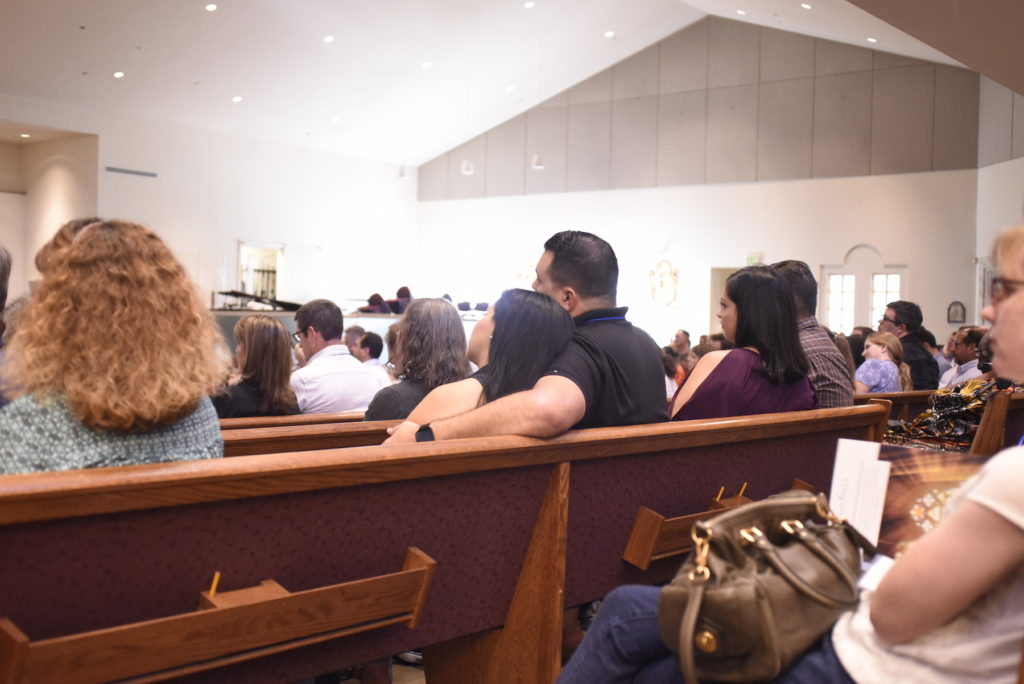

Two centuries ago, British philosopher and statesman Edmund Burke famously warned that those who do not know history are doomed to repeat it. With science, technology, engineering and mathematics understandably becoming such a prime focus in education, I worry that our society has lost sight of Burke’s admonition. And that’s a dangerous thing. Ever try driving without a rearview mirror? Or navigating busy streets in the midst of a blinding dust storm? I hope not.
To know where you are and understand where you’re going, you have to know where you’ve been. You have to know what came before. History: You better believe it matters!
These thoughts flood my mind lately because over the last few months, The Catholic Sun staff has been working diligently on an upcoming special edition that will focus on the 50th anniversary of the Diocese of Phoenix. As part of that effort, I was tasked with writing about family life in the diocese over the last 50 years, a period that encompasses practically my entire life, all of it here in our diocese.
As is sometimes said in journalism, “I was too close to the story” — meaning, when you’re caught up in something, you are sometimes blind to seeing it in context or dispassionately. You have to take a step back and look at things through new eyes.
Much good has been done in the way of catechesis, marriage preparation and enrichment in our diocese over the last 50 years. Our marriage and family support programs are stronger than ever. We have much to be thankful for. And yet, we have to understand the time in which our diocese was born and what the social and cultural atmosphere was in 1969 and how it affected us.
One of the first things I noticed in my investigation was that the Phoenix Diocese was founded just three months after what President Ronald Reagan once described as one of the biggest political mistakes he ever made. As governor of California in September 1969, with the flourish of a pen, he made no-fault divorce the law of the land in that state. Arizona and every other state in the country plus the District of Columbia soon followed suit. Suddenly, divorce became commonplace and marriage became less about a lifelong commitment between a man and woman for the raising of children and more about the pursuit of personal fulfillment.
Interestingly, the U.S. was not the first country to allow for no-fault divorce. As I dug a little further into my study, I discovered the Bolsheviks introduced no-fault divorce to Russia following the 1917 revolution that established the world’s first communist empire — an insidious empire that even after its defeat continues to spread its deadly poison. China similarly adopted no-fault divorce shortly after its communist revolution in 1949.
And what is the communist ideology all about if not the destruction of family and faith? Look no further than the messages of our Blessed Mother. Our Lady of Fatima warned in 1917, just weeks before the Bolsheviks swept into power, that “Russia would spread its errors throughout the world.”
I’ve lived my entire life as a Catholic and have yet to hear anyone talk about this connection between the murderous, atheistic ideology of communism and its infliction of divorce on a people once proud of their spiritual heritage. And that’s context for you. How can we fully appreciate the disastrous social consequences of widespread divorce without understanding how we got here?
Sitting at the Together in Holiness marriage conference organized by the Diocese of Phoenix last month, I looked around and saw hundreds of couples sitting in rapt attention as speaker after speaker encouraged us all to live our marriage vows in holiness, to face conflict courageously rather than run from it, to forgive and love completely and faithfully and tenderly until death do us part.
And I asked myself: Is this not the road to holiness, the Via Dolorosa, the way of Emmaus rolled into one? As married couples, we have to remember what first brought us together, Who keeps us together and the Kingdom for which we are bound.
Let us stand boldly for the sacrament of matrimony, understanding the grievous disaster and suffering of societies who have eschewed this noble calling for traitorous, false gods. The future belongs to those who learn from the errors of history. May our next 50 years in the Diocese of Phoenix be marked by a surge in holiness and faithful, loving marriages.





